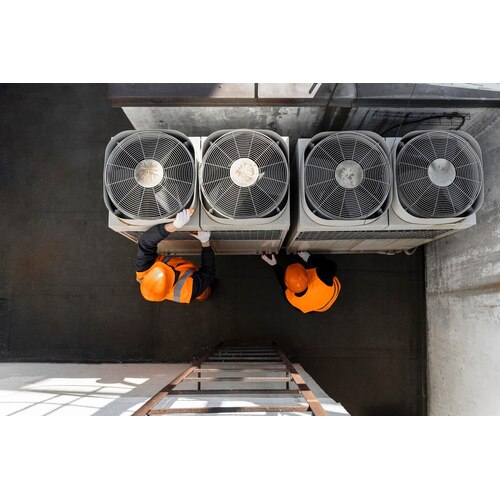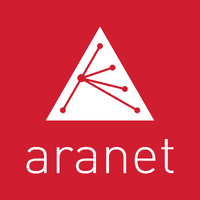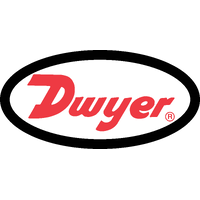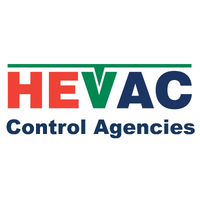The Role of Smart HVAC Controllers in Energy Efficiency for Commercial Buildings
Nowadays, when energy efficiency is paramount, commercial buildings increasingly turn to technology to optimise their heating, ventilation, and even air conditioning unit (HVAC) systems to save money. The intelligent HVAC controller is one of the most significant advancements in this area, often supported by reliable backup power like the AUS Cell 12V Battery 9Ah with Custom Plug and Label.
This piece by Control Traders explores the role of intelligent HVAC controllers in home climate and enhancing energy efficiency, their benefits, types, features, installation, maintenance, and their integration into smart home systems.

What is a Smart HVAC Controller?
A smart HVAC controller is an intelligent device that allows users to manage their HVAC systems remotely through smartphones or tablets. These energy-efficient HVAC devices, including heat pumps and ducted systems, can be integrated with air conditioners. By leveraging advanced algorithms and real-time sensor data, intelligent HVAC controllers optimise the performance of heating and cooling systems to maintain comfort while minimising energy consumption.
Key Functions
- Remote Monitoring and Control: Users can adjust settings from anywhere, ensuring optimal performance even when not on-site.
- Data Analytics: Many smart controllers provide insights into energy usage patterns, allowing for informed decision-making regarding energy consumption.
- Automation: They can adjust settings based on occupancy or time of day, increasing efficiency.
Benefits of Smart HVAC Controllers
Energy Savings
One of the core advantages of smart HVAC controllers is their ability to reduce energy consumption significantly. By optimising system performance through real-time adjustments to the right temperature based on occupancy and weather conditions, businesses can expect a reduction in energy bills ranging from 10% to 40%. In addition to reducing operating costs, this contributes to sustainability efforts by reducing carbon footprints.
Improved Indoor Air Conditioning
By using air quality sensors regulating temperature, humidity, and ventilation rates, smart HVAC controllers monitor air quality within buildings. These air conditioning systems contribute to better indoor environments by lowering allergens and pollutants by maintaining ideal conditions. Increased worker happiness and productivity can be attributed to better air quality.
Enhanced Comfort
With remote access capabilities, users can easily monitor and adjust temperature settings from their devices. This flexibility allows for personalised climate control that accommodates varying preferences among occupants. Scheduling features enable businesses and family members to set specific temperature profiles for different times of the day or week, ensuring comfort during working hours while saving energy during off-hours.
Increased Convenience
Integration with smart home systems adds another layer of convenience. Users can remotely control their HVAC systems alongside other smart devices through one app, single interface or voice commands via platforms like Amazon Alexa or Google Home. This interconnectedness simplifies management and enhances user experience.
Types of Smart HVAC Air Conditioning System Controllers
Understanding the different types of intelligent HVAC controllers available can help businesses choose the right solution for their needs:
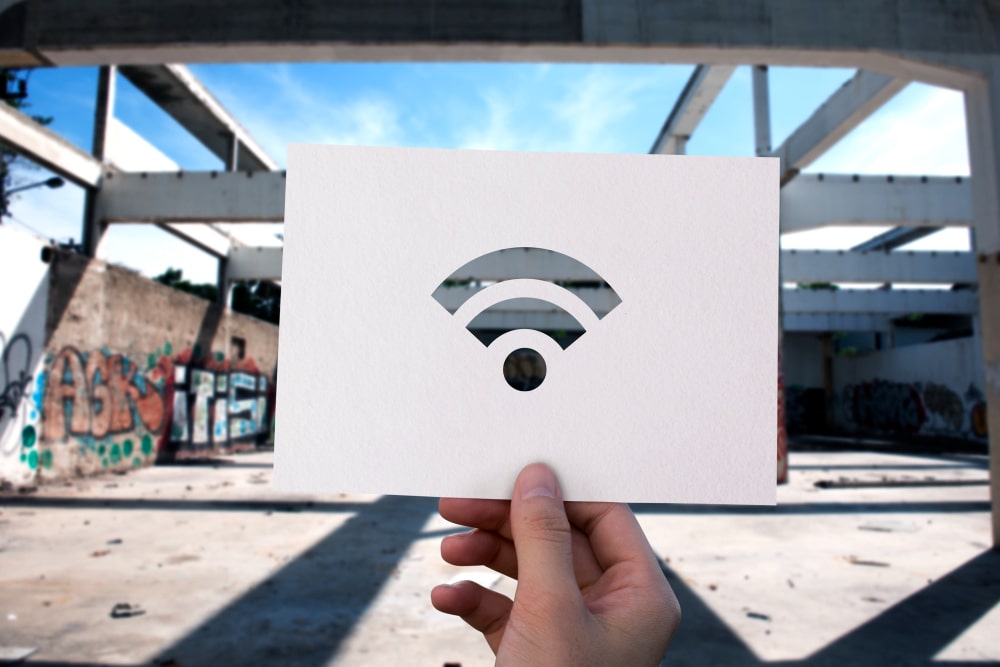
Wi-Fi Adapters
These devices can be retrofitted onto existing HVAC units to enable remote control capabilities without replacing the entire system. They serve as a bridge between traditional units and modern innovative technology.
Smart Thermostats
Smart thermostats are designed specifically for smartphones. They can be used to control temperature settings and schedule adjustments. They often come equipped with learning capabilities that adapt to user preferences over time.
Comprehensive Smart HVAC Systems
These systems integrate multiple climate control components into one cohesive unit, allowing for advanced heating, cooling, intelligent air conditioning, and ventilation management across large commercial spaces.
Features to Look for in a Smart HVAC Controller
When selecting an intelligent HVAC controller, consider the following essential features:
Remote Control Capabilities: Ensure the controller allows easy monitoring and adjustments via smartphones or tablets.
Scheduling and Automation: Look for features that enable users to set schedules based on occupancy patterns or specific times of day to optimise energy efficiency.
Air Quality Monitoring: Controllers with sensors that detect pollutants or humidity levels can automatically adjust settings to maintain healthy, sensible air quality.
Smart Home Integration: Compatibility with popular smart home platforms enhances convenience and allows for seamless control and management alongside other devices and accessories.
Versatility: Choose a controller that supports various HVAC systems to ensure compatibility with your house and existing infrastructure.
How Smart HVAC Controllers Work
Smart HVAC systems connect with HVAC systems using wireless technologies such as Wi-Fi or Zigbee. They gather data from various sensors, monitoring factors like temperature, humidity, room occupancy levels, and even external weather conditions to make real-time informed adjustments.
Programming and Automation
Users can program these controllers to operate under specific conditions; for example:
- Geofencing: The system detects when occupants leave or arrive at the building and adjusts temperature settings accordingly.
- Learning Algorithms: Some models learn user preferences over time and automatically adjust settings based on past behaviour.
Choosing the Right Smart HVAC Controller
Selecting the appropriate energy-efficient AC systems involves several considerations:
- Compatibility: Assess whether the controller is compatible with your existing HVAC system.
- Required Features: Based on your operational needs, determine which features are most important (e.g., air quality monitoring vs. essential temperature control).
- Energy Efficiency Potential: Research how different models perform regarding energy savings. Energy efficiency in HVAC systems helps you to avoid interruptions due to energy-related issues.
- User Reviews: Read reviews from other users to gauge reliability and performance.
- Cost vs. Value: Compare prices while considering long-term savings potential.
Installation and Setup
The installation process varies depending on the type of intelligent HVAC controller:
- DIY Options: Some controllers are designed for easy installation by users without professional help.
- Professional Installation: Hiring a professional may be necessary for more complex systems or integrations.
Always refer to manufacturer instructions during setup to ensure proper configuration.
Maintenance and Troubleshooting
To keep smart HVAC controllers functioning optimally:
- Regularly check and replace air filters or heat pumps.
- Update software and firmware periodically for security enhancements.
- Address common connectivity issues promptly by troubleshooting network connections or wifi adapters.
Energy Efficiency and Cost Savings
The financial benefits of implementing smart HVAC controllers are significant:
- Reduced Energy Consumption: By optimising system performance through automation and real-time adjustments.
- Lower Utility Bills: Businesses often see reductions in monthly energy expenses.
- Increased Asset Lifespan: Efficient operation reduces wear and tear, extending the lifespan of equipment and reducing replacement costs.
According to the U.S. Department of Energy, buildings with smart controls can achieve substantial energy savings without sacrificing comfort, making them an attractive investment for commercial property owners.
Smart Home Integration
Smart HVAC controllers can seamlessly integrate into broader smart home ecosystems:
- Compatibility with platforms like Amazon Alexa or Google Assistant allows users to control their systems through voice commands.
- Integration with other smart devices enables coordinated management—such as adjusting lighting based on temperature settings—enhancing overall building efficiency.
Remote Access and Control
For building managers, remote monitoring is a game-changer:
- Users receive alerts directly on their smartphones regarding system performance issues or maintenance needs.
- Remote access allows quick adjustments during off-hours or emergencies without needing physical presence on-site.
Final Thoughts
Smart HVAC controllers play a pivotal role in enhancing energy efficiency within commercial buildings by optimising climate control systems while improving comfort levels for occupants.
Their ability to provide total control, remote access, automation features, sensible air pro monitoring capabilities, and integration with smart home technologies make them invaluable tools in modern building management strategies.
Don't miss out on smart HVAC controllers' potential cost savings and convenience—consider implementing them in your commercial building today. For more information, contact us at 1300 740 140.
FAQs
What is smart HVAC control?
Smart HVAC, or intelligent climate control, refers to using technology, such as sensors and automation, to optimise the performance of building heating, ventilation, and air conditioning (HVAC) systems. This can include features like remote access, scheduling and automation, air quality monitoring, and integration with other smart home devices.
How much does a smart HVAC system cost?
The average cost to set up a new system would be about $10,000. Prices range considerably, from luxurious installations that cost up to $15,000 to more affordable choices that cost $5,000.
How can I make my HVAC smart?
You will need a compatible intelligent HVAC controller to make your smart HVAC control system smart. This device connects wirelessly to your existing HVAC system and enables it to be controlled through automation and remote access. Ensure that the controller is compatible with your current system before purchasing. Once installed, follow the manufacturer's instructions for setup and programming.
Can I make my ducted aircon smart?
Yes, you can make your ducted air conditioner a thoughtful air by installing a compatible Smart HVAC controller. This device will allow you to control your indoor unit and air conditioning system through automation and remote access.
Before purchasing, check the controller's compatibility with your specific ducted air conditioner model. Once installed, follow the manufacturer's instructions for setup and programming.
Leave a comment
Popular Posts
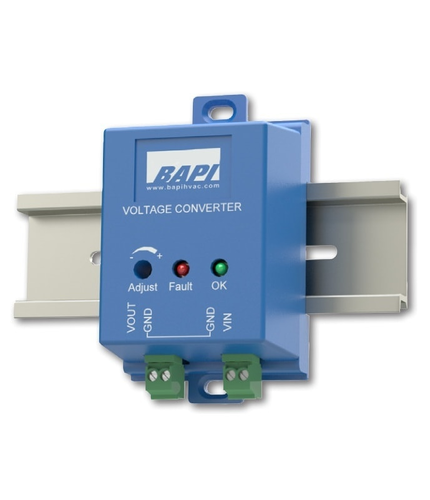
Voltage Converters: Learn How They Work and How to Pick the Best Type
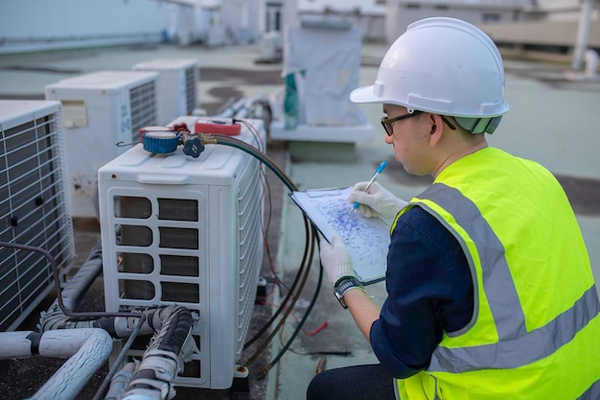
What is a Variable Speed Drive? A Beginner’s Guide to Understanding VSDs
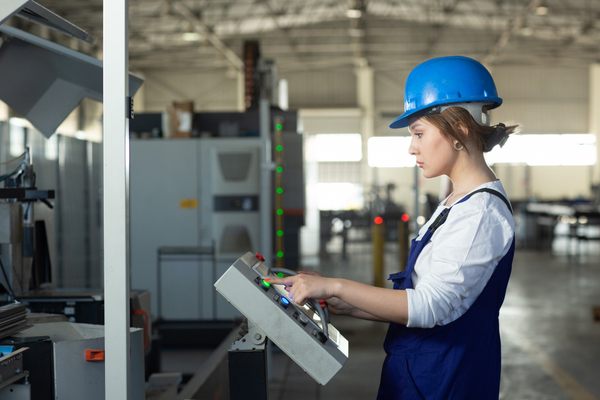
What is a VFD in HVAC and How Does it Work?
